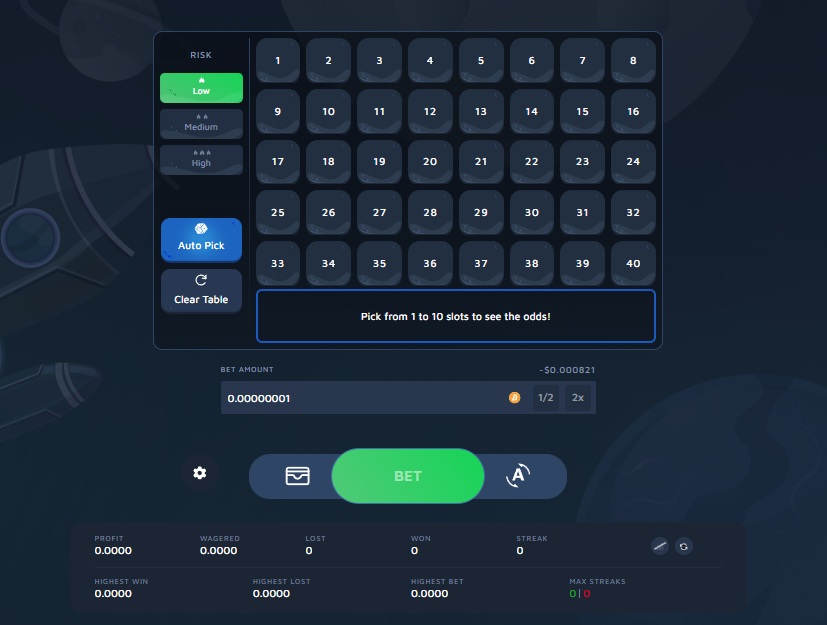

Keno stands as one of the oldest gambling games in history, with roots tracing back to ancient China over 2,000 years ago. Originally played with Chinese characters, the game eventually evolved to use numbers and spread globally. The fundamental concept remains elegantly simple: players select numbers on a ticket, and if these match the randomly drawn numbers, they win prizes based on how many matches they achieve.
Throughout centuries, Keno has maintained its basic structure while adapting to new cultural contexts. From Chinese lottery halls to Western casinos, the game's straightforward appeal transcended cultural boundaries. The 20th century saw Keno become a fixture in casinos worldwide, with electronic versions appearing in the 1980s, setting the stage for further technological evolution.
The internet revolution brought traditional casino games online, with Keno finding new audiences through digital platforms. Online Keno offered convenience and accessibility that physical casinos couldn't match. Players could participate from home at any hour, without travel costs or time constraints. Digital formats also allowed for rapid gameplay, larger jackpots, and innovative variations impossible in physical settings.
However, these early online implementations still operated within traditional financial frameworks. Deposits and withdrawals involved credit cards, bank transfers, and e-wallets—often with processing delays, geographical restrictions, and privacy concerns. The underlying technology remained centralized, with game outcomes determined by servers controlled by the gaming operators, requiring players to simply trust that the results were fair.
The emergence of blockchain technology created the foundation for a profound shift in online gaming. Decentralized systems offered unprecedented transparency, allowing players to verify the fairness of each game independently. Smart contracts enabled automatic, trustless execution of gaming rules and payouts. Most significantly, cryptocurrencies provided an alternative payment infrastructure free from traditional banking limitations.
This technological convergence created fertile ground for innovation in classic games like Keno. Bitcoin Keno emerged as one of the pioneering implementations, leveraging cryptocurrency for frictionless transactions while maintaining the familiar gameplay that had sustained Keno's popularity for millennia.
The integration of blockchain technology with Keno brought several transformative features:
The most revolutionary aspect of cryptocurrency-based Keno games is the implementation of provably fair algorithms. These systems use cryptographic methods that allow players to verify the randomness and fairness of each drawing. Unlike traditional online Keno, where players must trust the operator's claim of random number generation, blockchain-based games provide mathematical proof that outcomes weren't manipulated.
Cryptocurrency transcends national currencies and banking systems, making games accessible globally without conversion fees or banking restrictions. This borderless nature has particular significance for Keno, allowing unified global player pools and progressive jackpots previously impossible with fragmented currency systems.
Traditional online gaming requires extensive personal and financial information. In contrast, blockchain gaming platforms typically require minimal personal data. Transactions occur through cryptocurrency wallets rather than credit cards or bank accounts, providing enhanced financial privacy while maintaining necessary compliance standards.
The operational efficiencies of blockchain technology allow Bitcoin Keno and similar implementations to offer better odds to players. Without traditional payment processing fees and with lower overhead costs, operators can reduce their house edge, creating more favorable conditions for players while maintaining profitability.
Despite these advantages, cryptocurrency-based Keno faces several adoption obstacles. Technical barriers remain significant—managing cryptocurrency wallets and transactions requires knowledge beyond traditional online gaming. Regulatory uncertainty across jurisdictions creates compliance challenges for operators and hesitation among potential players.
Price volatility in cryptocurrencies also introduces an additional risk dimension. Players may see the value of their winnings fluctuate dramatically after games conclude. Some platforms address this by offering stablecoin options or immediate conversion to traditional currencies, but these solutions add complexity.
As blockchain technology matures and cryptocurrency adoption increases, we can anticipate significant evolution in this space. The future of Crypto Keno likely includes more user-friendly interfaces that abstract away technical complexity while maintaining blockchain's benefits. Cross-chain compatibility may allow players to use their preferred cryptocurrencies rather than being limited to specific tokens.
Community ownership models represent another promising direction. Decentralized autonomous organizations (DAOs) could enable player-owned gaming platforms where participants share in profits and governance decisions. This structure aligns incentives between operators and players, potentially creating more equitable gaming ecosystems.

The marriage of ancient Keno with cutting-edge blockchain technology exemplifies how traditional games can evolve while preserving their essential appeal. Bitcoin Keno and other cryptocurrency implementations represent not merely a technical upgrade but a fundamental reimagining of how games operate and how players interact with them.
As these technologies continue developing and adoption barriers diminish, we may witness a new golden age for one of humanity's oldest games of chance. The core appeal of Keno—the anticipation as numbers are drawn and the thrill of a match—remains unchanged, even as the underlying systems transform dramatically. This continuity within change demonstrates gaming's remarkable ability to evolve while preserving the essential experiences that have captivated players across cultures and throughout history.
If you enjoy PWInsider.com you can check out the AD-FREE PWInsider Elite section, which features exclusive audio updates, news, our critically acclaimed podcasts, interviews and more by clicking here!